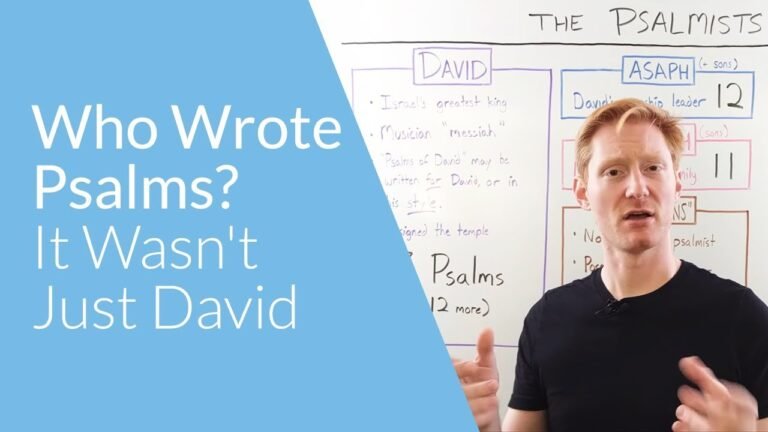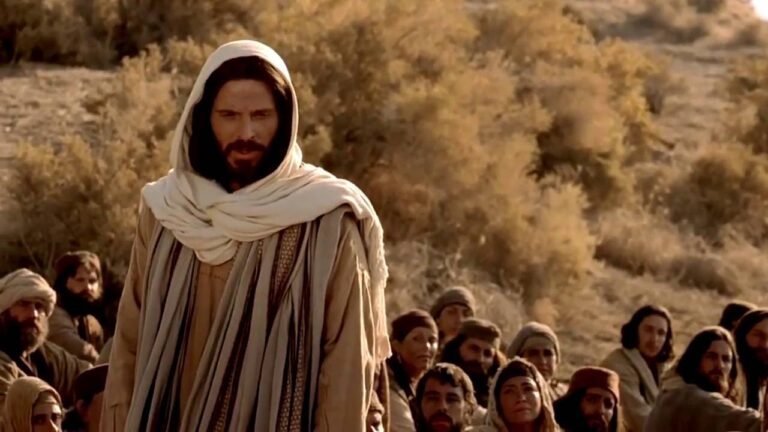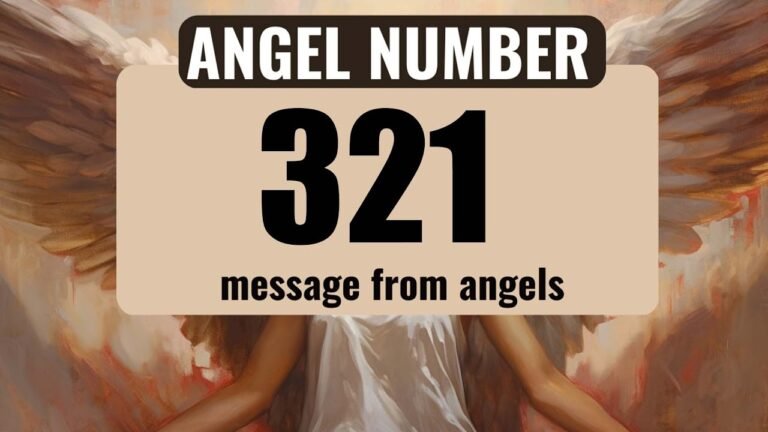Authorship of the Psalms: Unveiling the Mystery
The Psalms, a profound collection of poetry and prayer in the Bible, resonate with readers across generations, offering solace, inspiration, and insight into the human experience. But who penned these timeless verses? Traditionally attributed to King David, the Psalms also include contributions from various authors, including Asaph, the sons of Korah, and even Solomon. As we delve into the origins and authorship of these sacred writings, we uncover a rich tapestry of faith, emotion, and spiritual exploration that continues to touch lives today.
Who is the author of the Book of Psalms and what is the purpose behind it?
The Book of Psalms is a profound collection of spiritual songs and prayers, attributed to a diverse group of authors throughout biblical history. According to Jewish tradition, figures such as Adam, Melchizedek, Abraham, and David contributed to its composition, reflecting a rich tapestry of human experience and divine worship. Each psalm serves as a heartfelt expression of faith, encompassing themes of praise, lament, and thanksgiving.
The final compilation of these sacred texts is believed to have been carried out by the Men of the Great Assembly, as noted by the medieval scholar Abraham ibn Ezra. This editorial process not only preserved the spiritual legacy of the individual authors but also ensured that the Psalms would resonate with future generations, providing guidance, comfort, and inspiration to countless believers around the world.
What Psalms were written by Adam?
According to the Midrash Shocher Tov, Psalm 139 is attributed to Adam, reflecting profound themes that resonate with the essence of humanity. Verses 5 and 16 notably reference the creation of the First Man, highlighting the intimate connection between the psalm and Adam’s existence. Abramowitz notes that while David penned the actual words, the underlying themes echo Adam’s experience, bridging the gap between the earliest biblical figure and the poetic expression of his journey through life.
Which psalm was written by Moses?
Psalm 90, titled “A Prayer of Moses the man of God,” is recognized as the oldest psalm, with its origins tracing back to around 1400 BC. This ancient text signifies Moses as the first composer of sacred hymns, reflecting his unique role in the spiritual history of Israel. His designation as “the man of God” highlights his pivotal function as a mediator between the divine and the people, establishing a profound connection that resonates through generations.
Moses’ authorship of Psalm 90 not only underscores his significance in biblical history but also emphasizes the timeless themes of human frailty and divine eternity found within the psalm. The prayer invites readers to contemplate the brevity of life, urging a deep reliance on God’s mercy and guidance. As the first voice in sacred hymnody, Moses sets a precedent for worship that continues to inspire and uplift believers today.
Discovering the Voices Behind the Verses
Poetry has a unique power to resonate with our deepest emotions, and the voices behind the verses often reveal a rich tapestry of experiences and perspectives. Each poet, with their distinct style and narrative, invites us to explore the intricacies of human existence. From the rhythmic cadence of a sonnet to the free-flowing lines of modern verse, these voices capture moments of joy, sorrow, love, and longing, allowing us to connect with feelings that transcend time and place.
As we delve into the world of poetry, we uncover not just the artistry of language but also the stories that shape these voices. Each poem serves as a window into the poet’s soul, reflecting their thoughts, challenges, and triumphs. By celebrating these diverse narratives, we gain a deeper understanding of ourselves and the world around us, fostering empathy and connection through the universal language of words. In this journey of discovery, we recognize that every verse carries a heartbeat, echoing the thoughts and emotions of its creator.
Who Wrote the Psalms? A Deep Dive
The Psalms, a cherished collection of poetic prayers and hymns, are traditionally attributed to several key figures in biblical history, most notably King David. His profound relationship with God and his experiences as a shepherd, warrior, and ruler deeply influenced the lyrical depth found within many of the Psalms. However, it’s essential to recognize that other authors, such as Asaph, the sons of Korah, and Solomon, also contributed to this sacred anthology, each bringing their unique perspective and context to the text.
Scholars continue to explore the complexities of authorship, noting that the Psalms reflect a variety of historical circumstances and spiritual themes that resonate across generations. This diversity allows the Psalms to serve as a timeless voice of worship and reflection, speaking to the human condition in all its facets. By delving into the backgrounds of these authors, we uncover not only the rich tapestry of their individual experiences but also the shared faith that unites them, enriching our understanding of this profound scriptural treasure.
The Hidden Histories of Sacred Lyrics
Throughout history, sacred lyrics have served as vessels of spiritual expression, transcending cultures and generations. Often rooted in deep religious traditions, these texts have evolved, reflecting the beliefs and values of the societies that embraced them. From hymns sung in ancient temples to contemporary songs echoing in modern worship spaces, sacred lyrics carry the weight of personal and collective experiences, offering comfort, guidance, and a sense of belonging.
Many of these lyrics are steeped in rich symbolism and storytelling, drawing upon historical events, folklore, and parables to convey profound truths. As they pass through time, they often intertwine with social movements, becoming anthems for change and resilience. Yet, beneath their surface, lies a tapestry of hidden meanings and forgotten narratives, waiting to be explored by those willing to look deeper. The layers of history embedded within these sacred texts reveal not only the evolution of faith but also the struggles and triumphs of the human spirit.
As we delve into the hidden histories of sacred lyrics, we uncover a treasure trove of wisdom and inspiration. Each line invites reflection and connection, reminding us of our shared humanity in the face of adversity. By engaging with these powerful words, we honor the voices of those who came before us, while also finding our place within a broader narrative that continues to unfold. In understanding the past, we empower ourselves to shape the future, carrying forward the legacy of sacred lyrics into a world that yearns for meaning and unity.
Tracing the Divine Inspiration in Psalms
The Psalms, a profound collection of ancient poetry, serve as a timeless bridge between humanity and the divine, offering insights into the human experience while reflecting a deep spiritual connection. Each verse resonates with raw emotion, capturing the joys, sorrows, and hopes of life, inviting readers to explore their own spiritual journeys. Through vivid imagery and heartfelt pleas, these sacred texts not only articulate the struggles of faith but also reveal moments of divine presence and inspiration. As we trace the lines of these lyrical prayers, we uncover a tapestry woven with threads of devotion, despair, and ultimately, a yearning for intimacy with the divine, making the Psalms an enduring source of comfort and reflection for generations.
The authorship of the Psalms remains a fascinating tapestry woven from the lives of various figures, including David, Asaph, and Solomon, reflecting the diverse experiences and spiritual insights of ancient Israel. Each psalm serves as a testament to the complex relationship between humanity and the divine, inviting readers to explore themes of praise, lament, and hope. As we delve into these sacred verses, we not only uncover the voices of their writers but also connect with the enduring power of faith that continues to resonate through the ages.







